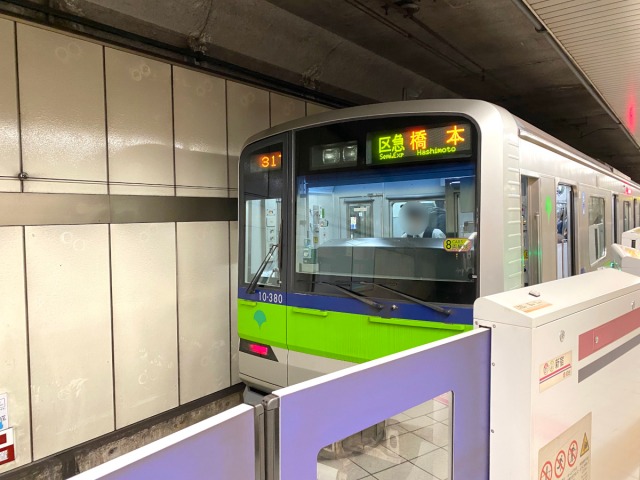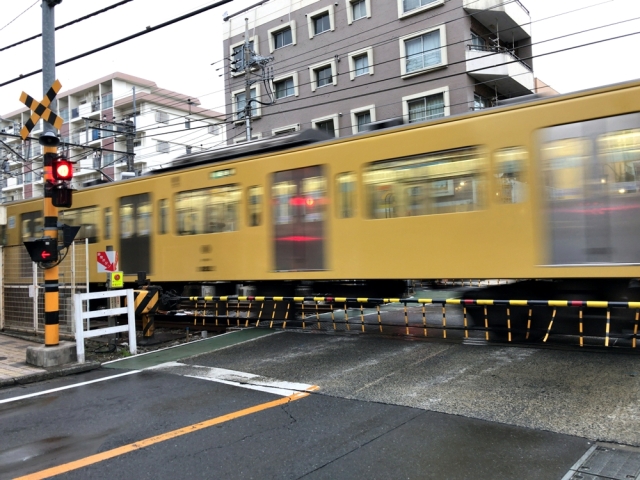
When you hear this term being used on trains, it’s often a euphemism for something more serious.
What’s the true meaning of “customer support” that railways sometimes give as a reason for train delays? That’s what our reporter P.K. Sanjun found himself thinking the other day, when he was on a train that was running eight minutes late and “customer support” appeared on the onboard screen and was announced by the driver as the reason.
“This train is currently running approximately eight minutes late due to customer support that occurred at XX station. We apologise for any inconvenience caused to passengers on board.”
It’s an announcement that P.K. has been hearing quite a lot lately, but despite hearing it more often, he’s no wiser as to what “customer support” really means. He does know that railways often use soft-sounding terms to describe serious situations — “human incident”, for instance is often used when a person is killed by a train — so he decided to get to the bottom of the matter by asking a railway employee about it as soon as he got off the train.

The staff member he talked to was a handsome station employee who seemed to be in his early 30s, and this is how their discussion went:
P.K.: Excuse me, I’d like to ask you something just out of curiosity. What exactly is “customer support”?
Rail Staff: “Well, it’s not one specific thing, but for example, arbitrating a fight between customers is classified as ‘customer support’.”
P.K.: I see. A fight, huh?
Rail Staff: “Also, responding to molesters will also become ‘customer support’.”
P.K.: Hmmm. However, in the case of looking after a suddenly ill person, it’s announced as “nursing for a suddenly ill person”, so why isn’t the arbitration of fights and the response to molestation specifically announced?
Rail Staff: “Well, I wonder why? There are cases where we announce it as ‘customer support’ even when tending to a person who’s suddenly become ill.”
P.K.: Oh, that’s true isn’t it. Then where does the difference lie between specifically announcing it as a “suddenly ill person” or “customer support”?
Rail Staff: “We don’t know anything about that because it’s left up to the directive…Sorry.”
P.K.: No, no, don’t worry about it. I understand. Incidentally, what was the specific “customer support” this morning?
Rail Staff: “Actually, we don’t even know. Because the station where the delay occurred belongs to a different railway company, we won’t know unless we ask for details. But I think it’s probably related to a fight or a molestation incident. I’m sorry. “
As you can see, “customer support” seems to be a complex term to describe situations where staff are required to help customers in the event of fights, sudden illnesses or molestation. In addition, it’s left up to the person in command as to whether the reason for the delay should be announced specifically or under the catchall umbrella of “customer support”.

However, due to the fact that sudden illnesses are often announced as such, the phrase “customer support” is more likely to be used in public announcements when unsettling situations like fights or molestation occurs.
Whatever the reason given for train delays, announcements like these always aim to make one thing abundantly clear — delays aren’t simply due to carelessness by the rail staff or railway company. People can’t really hold grudges against a railway company over a late train when “customer support” is given as the reason, and so the company’s image, and its relationship with customers, remains untarnished.
After all, railway companies in Japan pride themselves on delivering such excellent customer service they’ll openly admit when they’re in the wrong, even if that means apologising for trains running 20 seconds early.
Photos ©SoraNews24
● Want to hear about SoraNews24’s latest articles as soon as they’re published? Follow us on Facebook and Twitter!

No hay comentarios:
Publicar un comentario